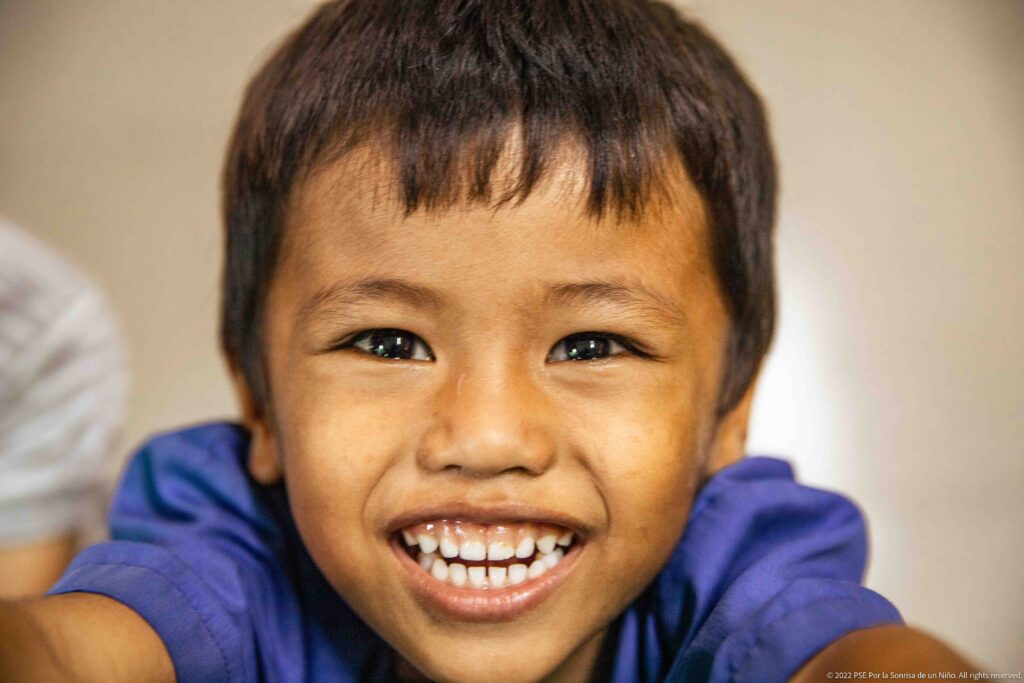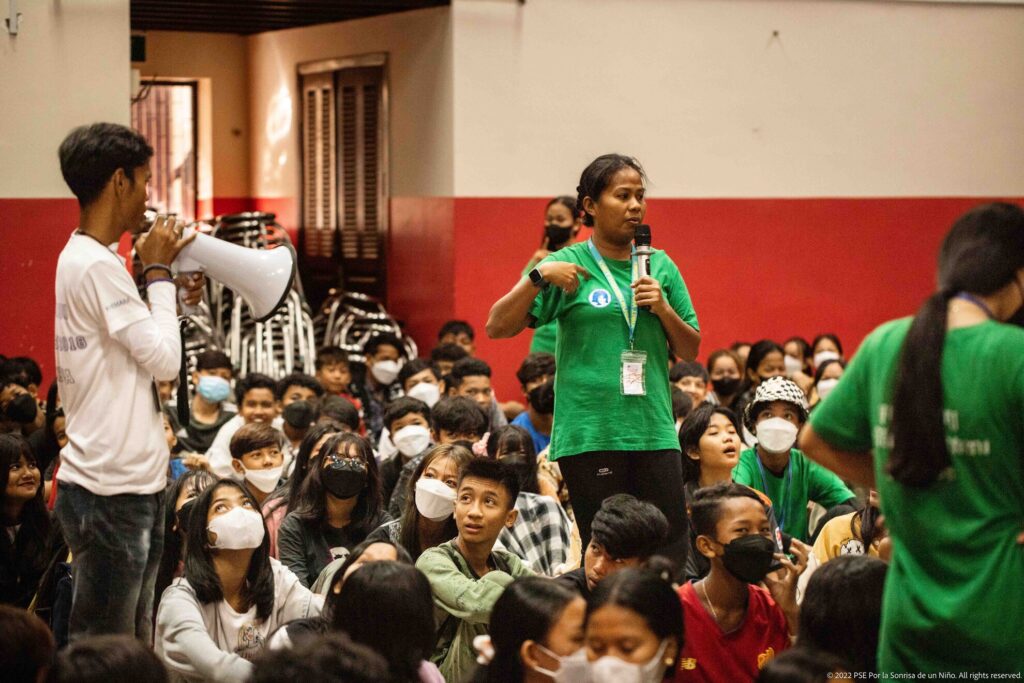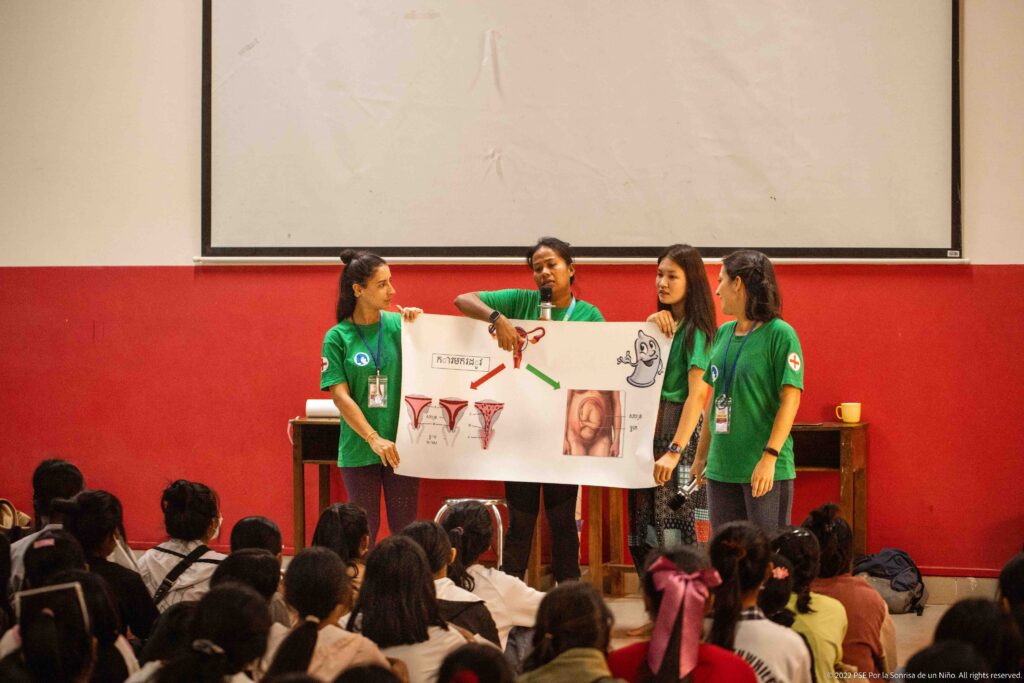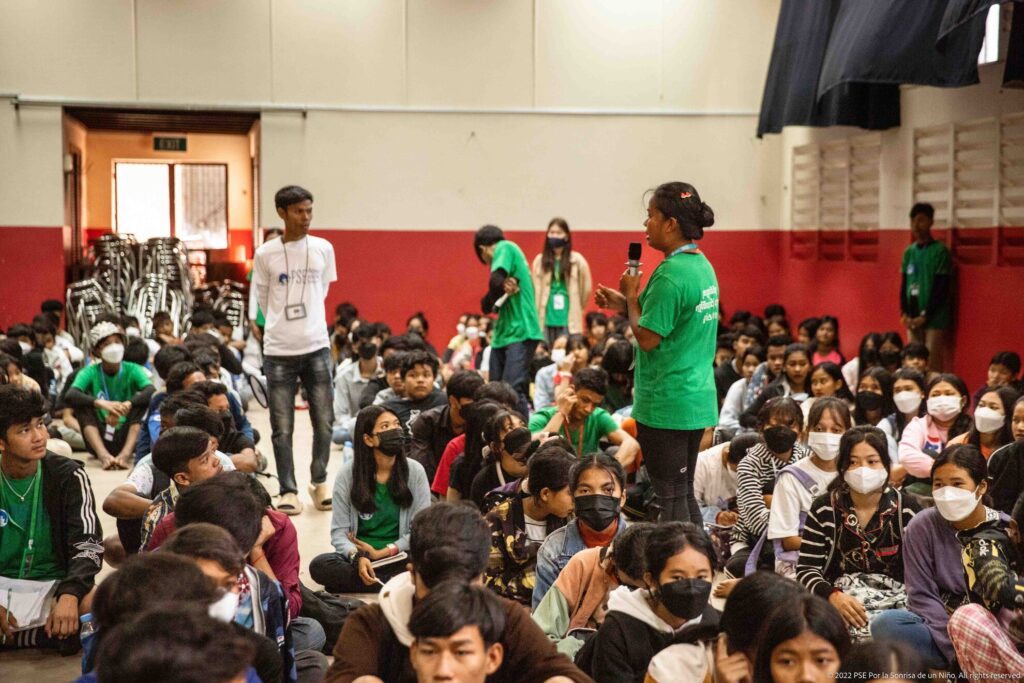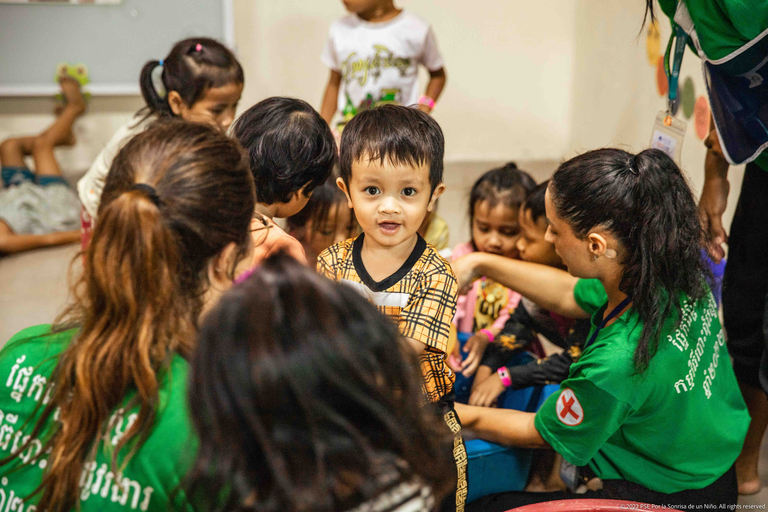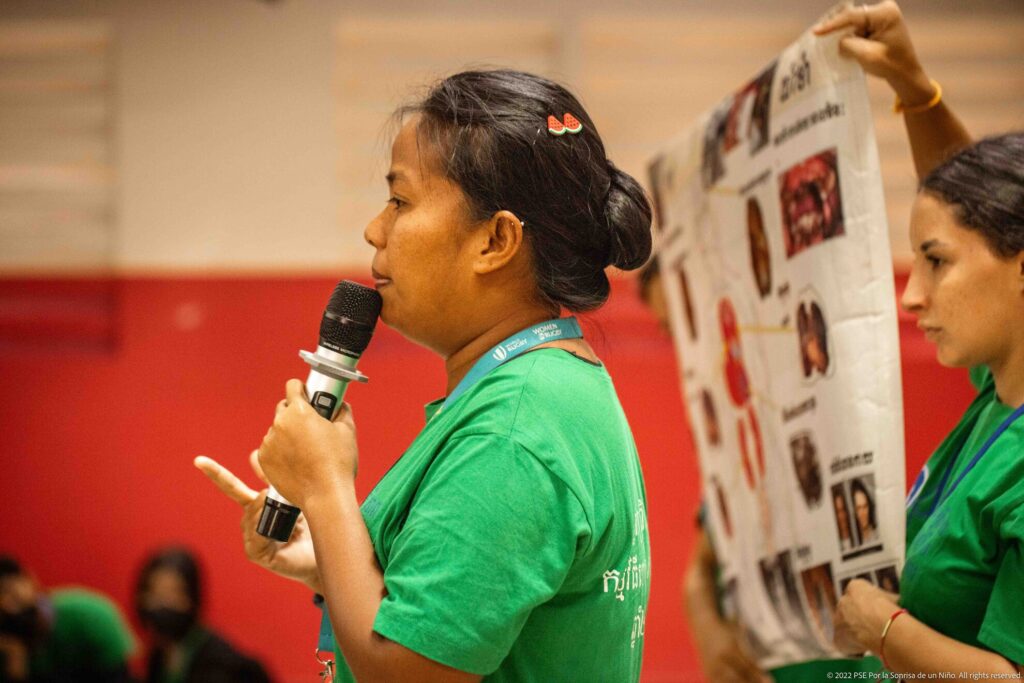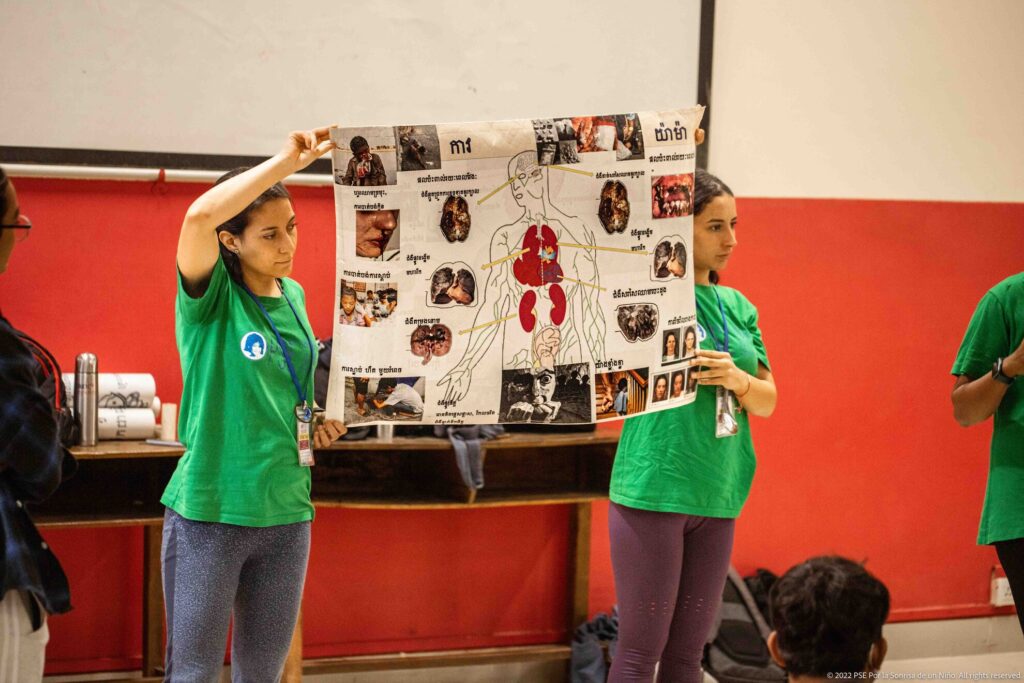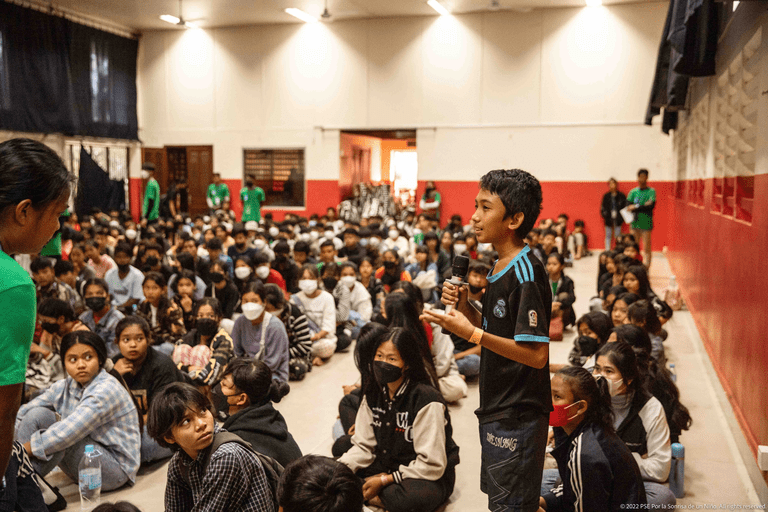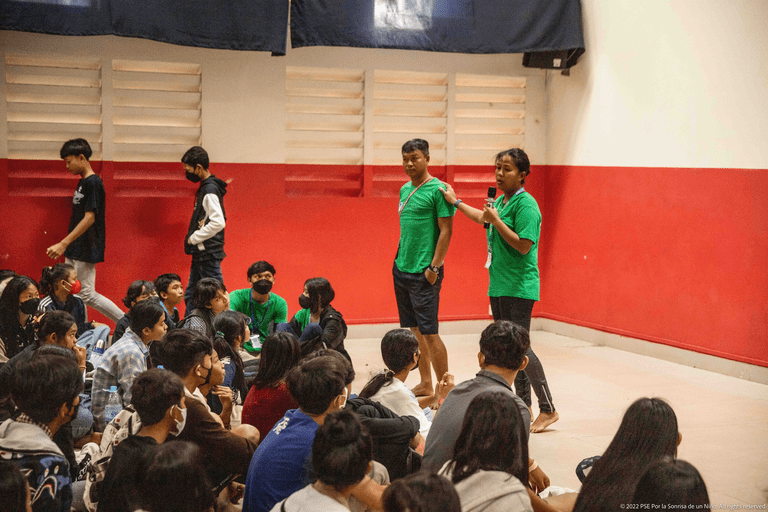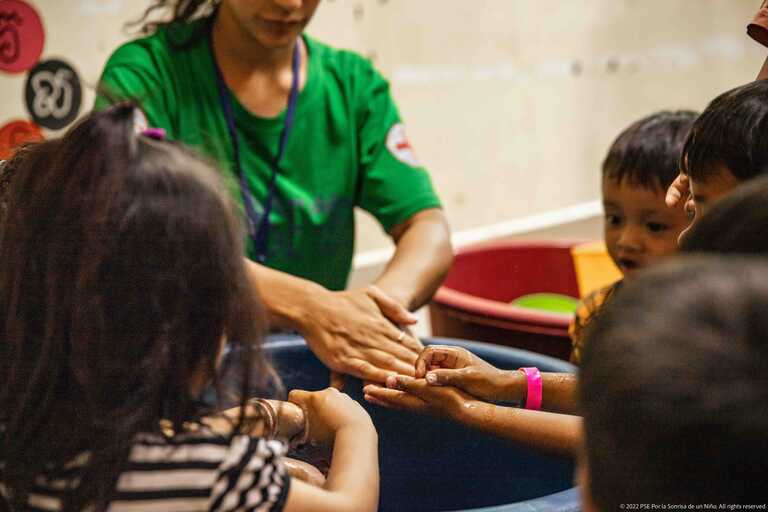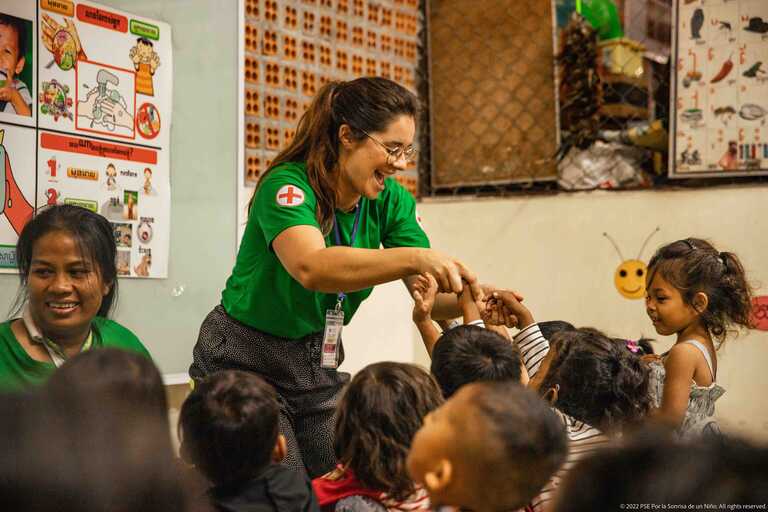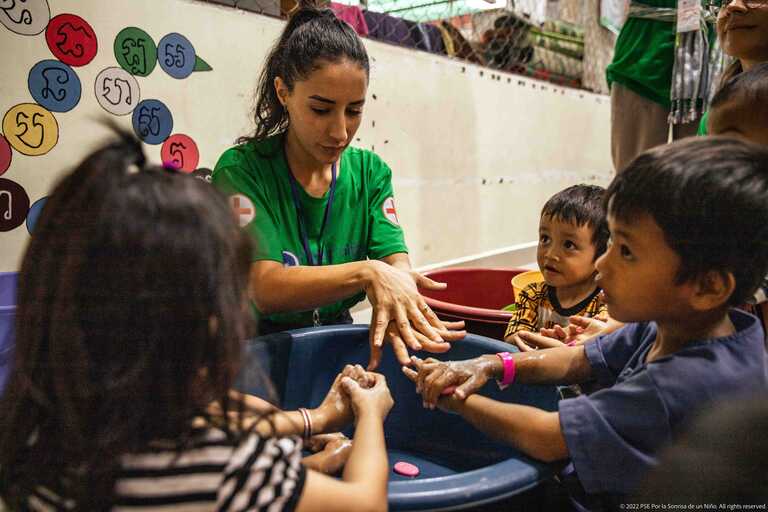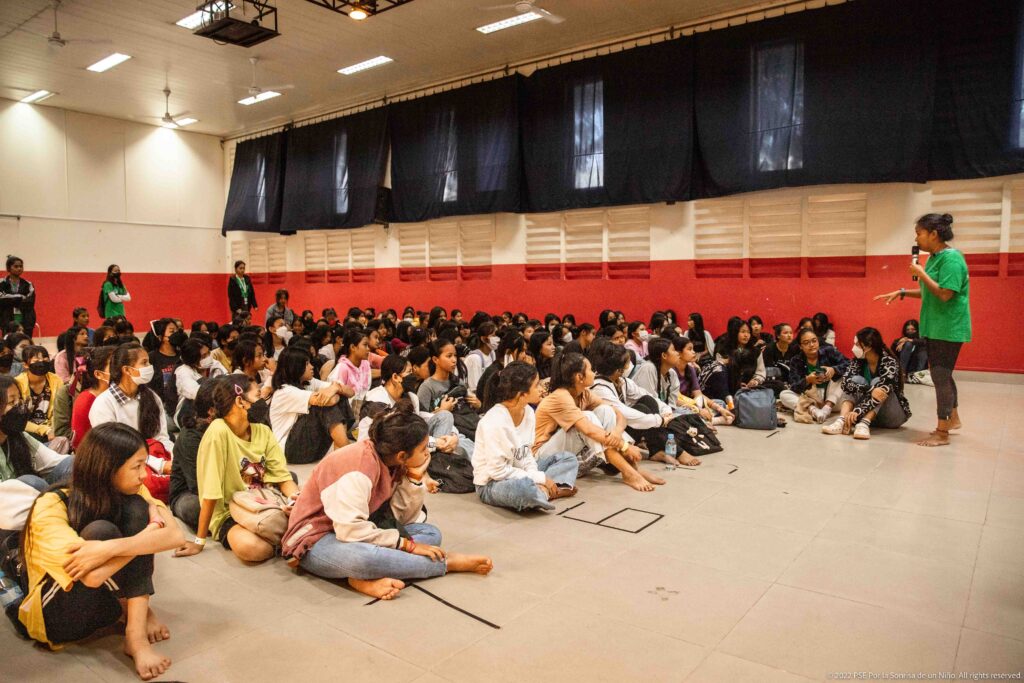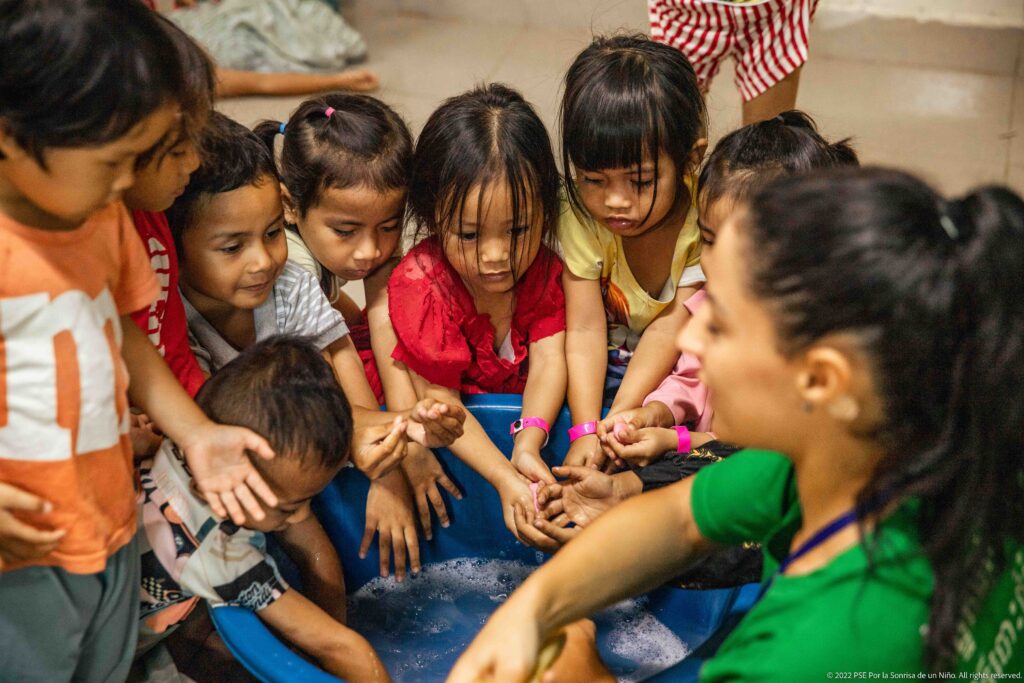
During the School Continuity Programme in Cambodia, a Medical Team is gathered with the objective of taking care of the volunteers and providing medical education and awareness to the children as the information that the kids usually receive during school year related to personal hygiene, drugs or diseases is sometimes scarce (although increasing drastically). For this reason, the team´s task is crucial for the well being of the children, as well as for the European volunteers that offer their time with blind trust.
Being available 24/7.
In the first place, this Team is focused on taking care of the well being of the volunteers that participate in the School Continuity Programme. “The volunteers work their tails off to help the children, so it is crucial to take care of them in the first place”, affirms Aida, a European doctor. This means working as a Medical Centre first thing in the morning and at the end of the day, as well as being available 24/7 for emergencies and queries. The teams count with the help of Doctor Sebban, a European doctor who lives in Cambodia and backs the team up with the biggest issues.
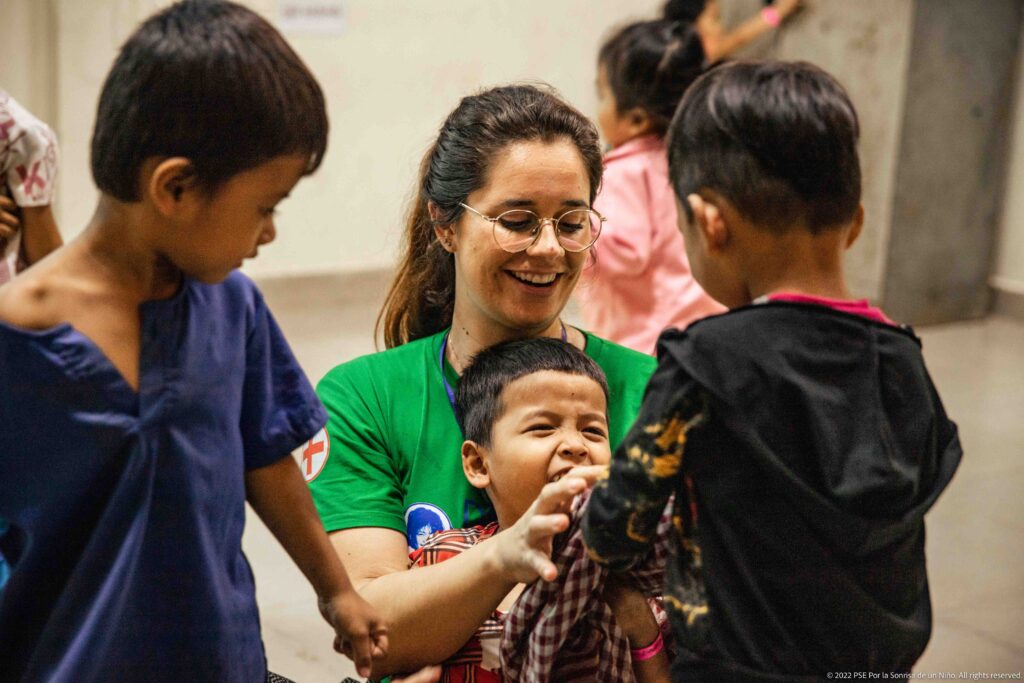
The most common concerns that the volunteers consult to the Medical Team are: infected wounds, insect bites, constipation and diarrhea. As to the wounds, the volunteers are encouraged to visit the nurse frequently until healed in order to clean them properly. This is because -however small they might be-, they can get easily infected during the Project. For patients that need to stay in their rooms because they are indisposed, the Medical Team practices daily check-ups on them in situ.
We cannot timagine School Continuity Programme without this magnificent task. Every year we are so grateful for the Medical Team is here because their most important job is to accompany patients and bringing smiles to their faces. So many thanks have been repeated during the whole month from people with Covid, fibrillar rupture or cuts, among other things.
“The children are sinking in the main ideas”
Aida
The second main task of the Medical Team is giving health education to the children that attend the PSE School Continuity Programme. The European volunteers Laura, Andrea, Aida and Cristina prepare these workshops and Sophoan, a Khmer volunteer delivers them to the kids with great communication skills. According to the age group, the subject varies. For kids younger than six years old, the main focus is teaching them how to wash their hands correctly. Along with posters and songs, children learn about bacteria and how to get rid of it in every hand wash they do. They play games where they practice how to do it properly and, as the volunteers in charge of these kids say, afterward, they are eager to wash their hands before every meal. “We can see that the children are sinking in the main ideas and will, hopefully, transmit them to their families”, adds Aida.
For older kids, the workshops also cover transmissible diseases and how to treat wounds. Most of these children do not know how to properly heal their own injuries and apply on them whatever they can find or nothing at all. The Medical Team shows them how to wash the sores with water and soap and how to apply a bandage if they are going to be in contact with dirt. “Even though it might seem like something basic, they are unaware of it”, points out Andrea, a European nurse.
“They know that drugs exist but they are unaware of the harm they do to your body”
Sophoan
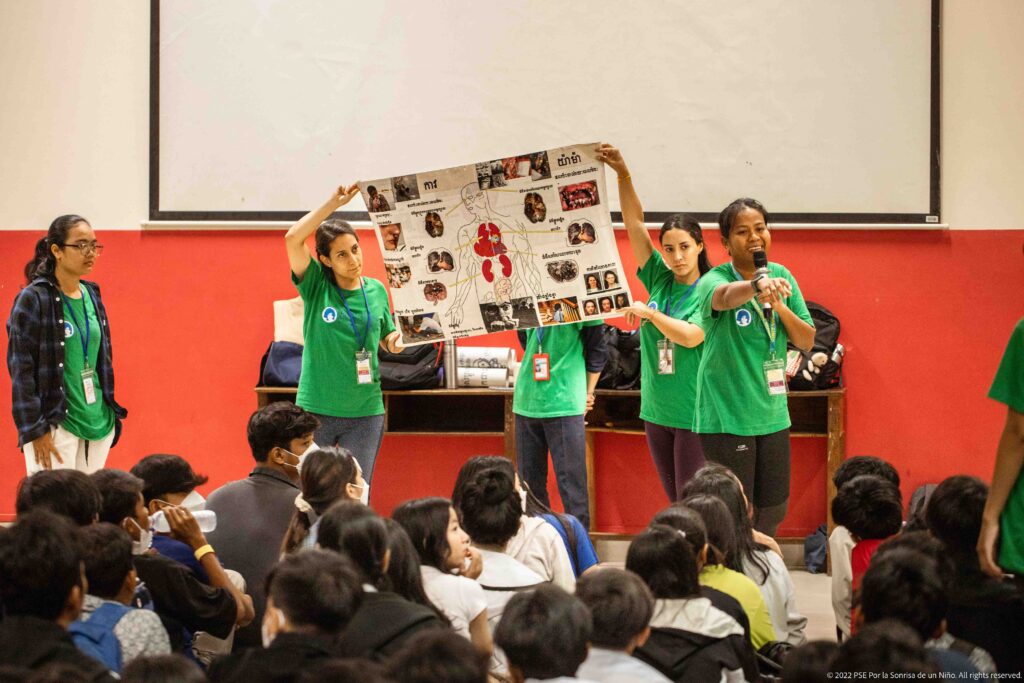
Teenagers and Pensionnaires receive first-aid training to be able to react in the most basic of emergencies. All the kids older than ten learn about the use and dangers of drugs and alcohol. They might seem young to hear about these things, but most of them have grown up around these substances so it is important to let them know the dangers they entail. “They know that drugs exist but they are unaware of the harm they do to your body”, remarks Sophoan. “The biggest challenge is to make them really understand these things so that, if any problem related to these substances happens around them, they will be prepared for the situation”, adds Sophoan.
The Teenagers Project has Workshops every Wednesday. A very important subject that is addressed with this group is sexuality. Cristina, a European doctor, states that in Cambodia, sexuality is a taboo topic. Boys and girls are divided for this workshop, as to feel more free to speak up about doubts and questions that they might have.
In spite that in PSE Central there is a medical clinic to care for the kids, in the Community Service Centers (CSC) outside of the area, there is not a doctor or nurse available at all times. The Medical Team, therefore, visits the different CSCs and checks on the children´s superficial health issues as well as doing workshops with them. They evaluate which kids need to visit the doctor in Central for treatment. The rest that do not have such serious issues are treated at the CSC on the spot. This team also teaches the coordinators of each Programme how to treat several types of wounds in order to save up time and to promote the well-being of the children. Every Project has its own First-aid kit, prepared by the Medical Team, with all the essential products they might need throughout the month.
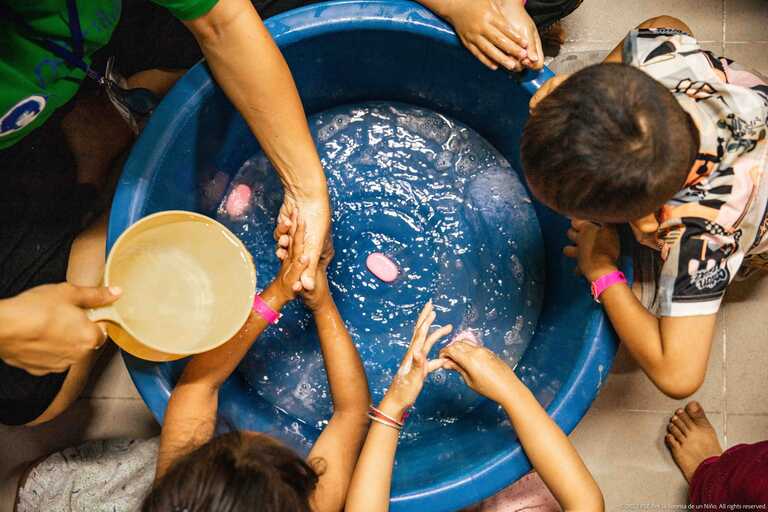
“It is a long-distance race”
Laura
In conclusion, health education is key, especially for the PSE kids, thus the attempt to give them the basic concepts according to their age. The workshops need to be adapted, in order to strengthen the knowledge that they can put into practice on a daily basis. Every year it is noticeable how the children learn from these workshops. “It is a long-distance race”, concludes Laura, the European coordinator, “but we progress a bit every year and will continue to walk many more kilometers”.
